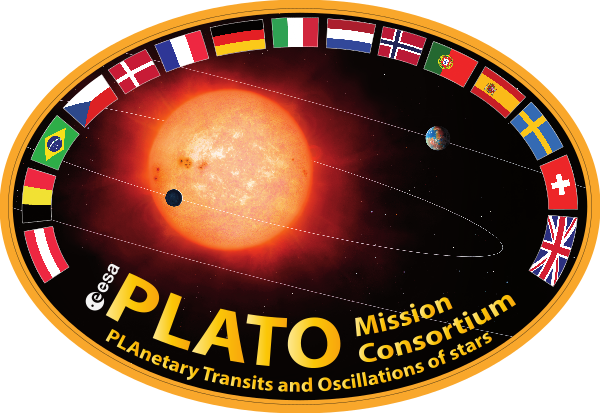About PMC Science Management
A History of PLATO
PLATO (PLAnetary Transits and Oscillations of stars) was first proposed as an ESA Cosmic Vision M-class candidate mission in March 2007. In October of that year it was selected for further, internal assessment and consideration by ESA. This began in November 2007, and an Invitation to Tender to Industry was issued in April 2008. A report of the assessment, which included the PLATO science case together with a synthesis of industrial and instrument consortium studies, was presented to the scientific community in December 2009. In addition, an independent technical review of the assessment study was conducted by ESA; the recommendations of the review board were also presented to the scientific community in December 2009.
On 18 February 2010, ESA’s Science Programme Committee recommended that PLATO, along with Euclid and Solar Orbiter proceed to the definition phase. In February 2011, the SPC selected the PLATO Mission Consortium for the provision of the payload and science ground segment components. In October 2011, Euclid and Solar Orbiter were selected for implementation, with PLATO maintained as a possible competitor for a future flight opportunity.
In January 2013, a re-organised PLATO Mission Consortium (PMC) was proposed to ESA, led by Prof. Heike Rauer from DLR, Germany. In March 2013, PLATO became a candidate for the M3 launch opportunity. It was then chosen as the third M-class mission in ESA's Cosmic Vision Programme at the SPC meeting of 19 February 2014, and formally adopted by ESA as a mission in June 2017. On 2nd May 2018, it was announced that OHB System AG had been selected as the prime contractor for the mission

PMC Science Management
The PMC Science Management (PSM) was formed in 2008 under the leadership of Prof. Don Pollacco (then at Queen’s University Belfast, UK). Comprising members from across the European Exoplanet community, the PSM worked on the scientific preparation of the mission throughout the M1/M2 selection process. Following the down-selection of PLATO, and the reorganisation of the Mission Consortium, the PSM resumed activities in 2013, again led by Prof. Pollacco (now at the University of Warwick, UK).
The PSM currently includes over 500 researchers from 14 ESA Member States, as well as an Associate Member state, and 7 other nations across Europe, North America, and South America. It's activities are split into five main areas:
- Exoplanet research
- Stellar science
- Field / target characterisation and selection
- Follow-up studies
- Complementary science
For more information on the PSM's activities, please check the Research pages.
